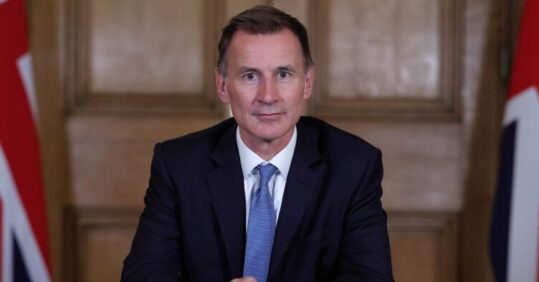Hunt’s failure to address nurse numbers will worsen crisis, RCN warns

The Royal College of Nursing (RCN) has criticised chancellor Jeremy Hunt for failing to address low nurse recruitment numbers in his latest budget, warning that ‘the ground has been laid for the nursing crisis to worsen’.
The measures announced by Mr Hunt included a £2.5bn day-to-day ‘funding boost’ for NHS England in 2024/25, and £3.4bn in capital investment aimed at productivity and new technology such as artificial intelligence.
But there was no funding allocated for general practice or the nursing workforce specifically.
In response to the budget statement, Professor Pat Cullen, RCN general secretary and chief executive, said: ‘Technology is transformative in health care but you still need enough staff to use it.’
Related Article: ‘Patients not prisoners’: Palliative care nursing behind bars
According to Professor Cullen, a package of financial measures – including a loan forgiveness scheme for nurses working in the NHS – should have been announced to boost domestic nurse recruitment.
The headline measure in the budget was a 2p cut in National Insurance for employees and the self-employed.
However, Professor Cullen insisted that the public ‘want the health service turned around more than they support tax reduction’.
She also claimed that the cut was ‘enough to cover the student loans of NHS nurses for the next four decades’.
Unison joined the criticism of the chancellor’s priorities, with general secretary Christina McAnea dismissing the budget as ‘the stuff of fantasy’.
She said: ‘Families might be struggling, but people would rather have functioning local services than a few possible extra pounds in their pockets.
Related Article: NHSE confirms dates and eligibility for autumn Covid and flu jabs
‘No one wants to go weeks to see a GP, spend hours waiting in overcrowded A&E departments or languish on growing NHS waiting lists,’ she added.
Meanwhile, Sir Julian Hartley, chief executive of NHS Providers, welcomed the extra £2.5bn day-to-day NHS funding as a ‘much needed – but temporary – respite’ from financial pressures.
Sir Julian also said the £3.4bn productivity and technology investment would give trust leaders and their teams ‘a much-needed boost’.
However, he added: ‘They also needed politicians from all parties to recognise that overstretched staff are already working incredibly hard to treat patients with increasingly complex conditions within existing resources and in the face of relentless demand.
‘Trust leaders are also acutely aware that while the budget offers the NHS some breathing space, their highly valued partners across local government and social care are facing major funding crises.’
Related Article: QICN bids farewell to Dr Crystal Oldman as she retires from CEO role
Steve Brine, chair of the parliamentary select committee for health and social care, said the investment in productivity and technology was ‘good news’.
He added that the additional £2.5bn funding for the NHS was ‘welcome at a time when some patients in some parts of the country continue to face long waits for treatment’.

See how our symptom tool can help you make better sense of patient presentations
Click here to search a symptom




